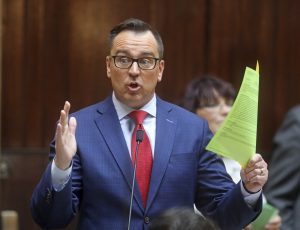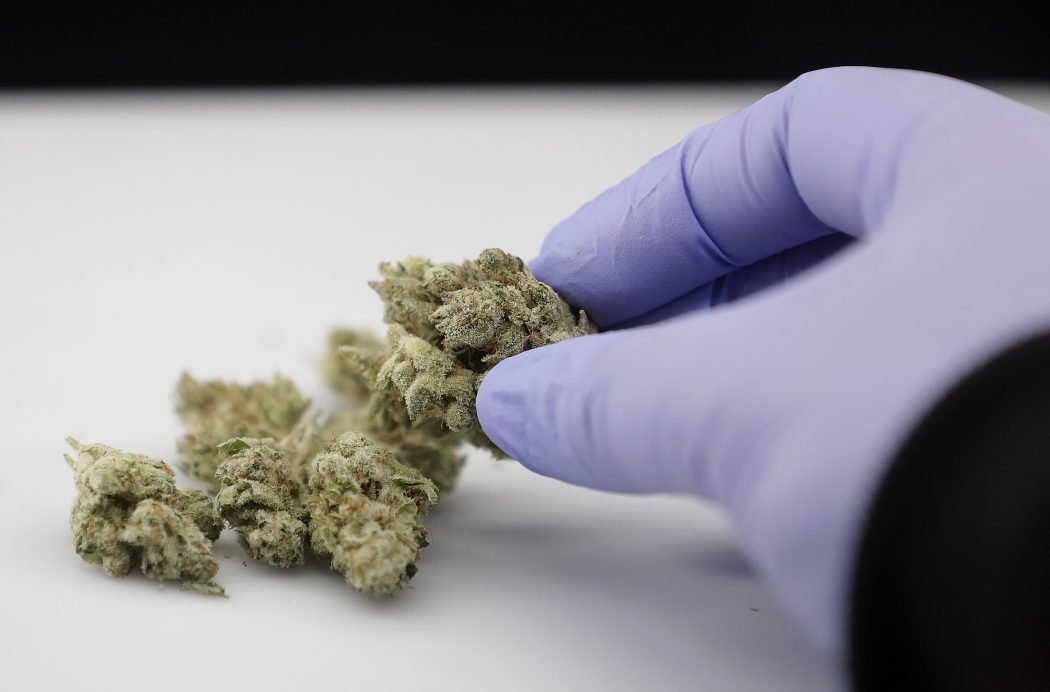Medical-marijuana ballot measure passed in Utah Legislature causes backlash
By LINDSAY WHITEHURST, Associated Press
SALT LAKE CITY (AP) — Lawmakers in conservative Utah passed sweeping changes to a new voter-approved medical-marijuana ballot measure on Monday under a planned compromise that secured the support of the influential Mormon church but has sparked a backlash from advocates.
Supporters of the compromise cheered the vote, saying it would help suffering patients while creating safeguards against broader recreational use.
“I believe this agreement was a landmark day for our state, and we are helping people,” said outgoing Republican House speaker Greg Hughes, who sponsored the legislation and helped bring together the players for talks.
The plan for changes was announced before Election Day as part of a broad compromise that won the backing of The Church of Jesus Christ of Latter-day Saints.
Democrats argued the measure’s passage with 53 percent of the vote shows people want the measure as written, and they proposed leaving original language of the measure intact. Republicans overwhelmingly voted down the idea.
“We’re rushing this. It’s bad public policy and it’s sad,” said Democratic Sen. Luz Escamilla.
The changes would ban many marijuana edibles, prevent people from growing their own marijuana if they live far from a dispensary and narrow the list of eligible medical conditions.
 Associated Press
Associated Press Republican outgoing House Speaker Greg Hughes speaks during a special session Monday, Dec. 3, 2018, in Salt Lake City. Utah lawmakers are meeting to consider changes to a voter-approved ballot initiative legalizing medical marijuana in a move that has generated backlash among supporters of the pot measure. (AP Photo/Rick Bowmer)
Smoking marijuana wasn’t allowed in the original ballot measure and won’t be under the new version. The original legalization measure passed Nov. 6, putting Utah on a list of more than 30 states that allow medical marijuana.
Opponents of the changes say they create major obstacles to patients who want to get the drug and cut the number of locations where the drug would be available.
“It’s an almost complete disregard for the will of the people once they’ve spoken through the initiative process,” said Rocky Anderson, an attorney representing medical-marijuana advocates.
They plan to sue to block the compromise from going to effect, said Christine Stenquist with the group Together for Responsible Use and Cannabis Education. She and other medical-marijuana advocates went to the voters after years of trying unsuccessfully to convince conservative legislators to pass a bill, and the groups cleared a high bar to win a spot on the ballot.
Compromise supporters, though, argue it’s an improvement on the original and won over mostly Mormon lawmakers who have historically been reluctant to support any form of medical marijuana.
“For me to approve even this compromise is a huge step,” said Republican Sen. Allen Christensen.
Some medical-marijuana advocates also support the agreement, saying state law allows the Legislature to change the language of laws passed by voters, so it was better to negotiate with opponents of the measure rather than endure a prolonged legal fight.
“We have the right to override what the people do by initiative,” said Republican Rep. Merrill Nelson, though, he noted, “we don’t do that willy-nilly.”
But opponents of the plan criticized the compromise negotiations held largely out of the public eye, and said they are an example of the Utah-based faith exerting its influence on public policy. Mormons have long frowned on marijuana use because of a key church health code called the “Word of Wisdom,” which prohibits the use of alcohol, tobacco and illegal drugs.
The church agreed to the pre-election deal to allow access for people with serious medical needs as the measure seemed to gain support.
Church leaders have said they stand behind the work done to help craft a compromise it considers a safer medical marijuana program.

